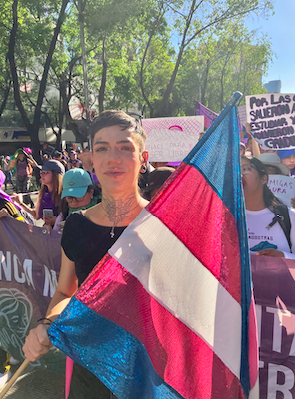The EDGEy Wednesday session, titled “Chained funding and movement sustainability: transitioning from funding to different types of collaborations,” focused on exploring intergenerational support and sustainable movement funding. Participants discussed how activist groups like FRIDA and SAHR foster long-term collaboration and support through various initiatives, connecting grantees with other donors and building trust-based networks to ensure the continuity of grassroots activism. The session also showcaseed how FRIDA’s mission influences and supports movement building and sustainable funding strategies.
Resources and Lessons
Philanthropy should fund programs that engage young people in meaningful ways, as early involvement in social justice causes often sparks a deep and lasting commitment, which is also nourished by intergenerational bridges and alliances through which the baton of change is passed.
Philanthropy should recognize the power of student-run and grassroots movements, particularly in contexts where younger generations, such as law students or activists, are taking the lead in advocating for change. These movements often need flexible, accessible funding and guidance as they challenge entrenched systems, such as legal frameworks or political structures.
In recognizing the threat of shrinking civic spaces and increasing authoritarianism, philanthropy needs to provide to social justice movements the resources and support necessary to adapt to these continuously challenging political landscapes, ensuring they can continue their work despite external pressures.
As sectors like aid and development increasingly depoliticize inherently political issues, it’s important for funders to remain vigilant and push back against trends that neutralize the political nature of justice work. Philanthropy needs to continuously support social justice movements that bring critical political issues back into focus, particularly in response to industrialization and socio-economic challenges.
While participatory grantmaking is being embraced as a progressive alternative to traditional philanthropy, it’s important to maintain a critical eye and critically examine how participatory models can be truly inclusive and effective, ensuring that they empower movements in practice, not just in theory.
Movements require different types of funding at various stages of their work. Seed funding supports the initial phases, but as movements grow, they may need access to larger funding pools, and philanthropy should develop referral systems that guide movements through this funding chain, ensuring they have the right resources at each stage of their evolution, without leaving them stranded at early or mid-stages.


Leave a Reply
You must be logged in to post a comment.